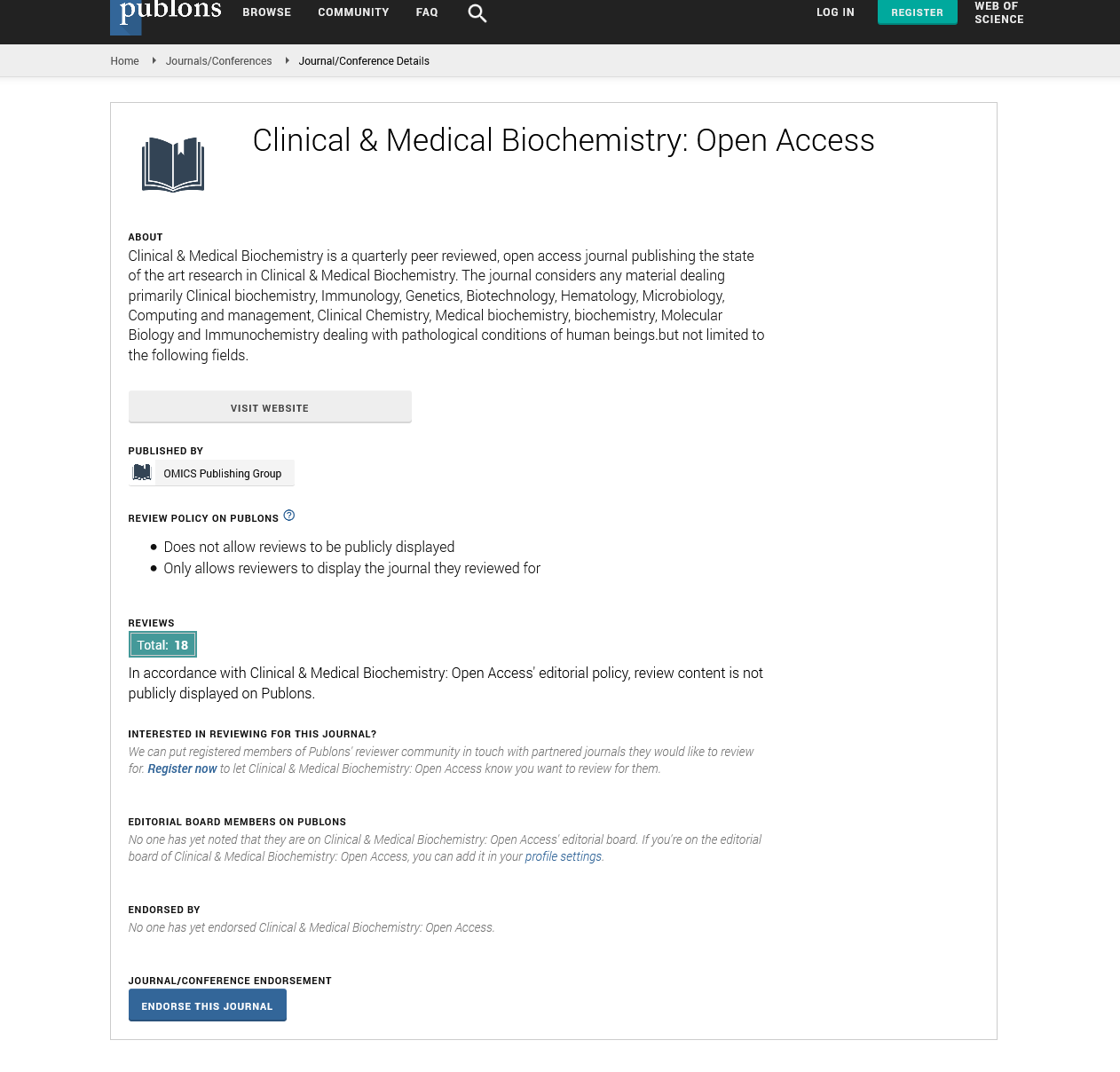Indexed In
- RefSeek
- Directory of Research Journal Indexing (DRJI)
- Hamdard University
- EBSCO A-Z
- OCLC- WorldCat
- Scholarsteer
- Publons
- Euro Pub
- Google Scholar
Useful Links
Share This Page
Journal Flyer

Open Access Journals
- Agri and Aquaculture
- Biochemistry
- Bioinformatics & Systems Biology
- Business & Management
- Chemistry
- Clinical Sciences
- Engineering
- Food & Nutrition
- General Science
- Genetics & Molecular Biology
- Immunology & Microbiology
- Medical Sciences
- Neuroscience & Psychology
- Nursing & Health Care
- Pharmaceutical Sciences
Opinion Article - (2023) Volume 9, Issue 5
CD4 T Cell Paralysis and Its Impact on Antitumor Activity
Leeann Hoover*Received: 01-Sep-2023, Manuscript No. CMBO-23-23073; Editor assigned: 04-Sep-2023, Pre QC No. CMBO-23-23073 (PQ); Reviewed: 18-Sep-2023, QC No. CMBO-23-23073 ; Revised: 25-Sep-2023, Manuscript No. CMBO-23-23073 (R); Published: 02-Oct-2023, DOI: 10.35841/2471-2663.23.9.183
Description
The immune system plays a critical role in protecting the body against various threats, including cancer. T cells, specifically CD4 T cells, are a vital component of the adaptive immune response. They organize and regulate immune responses, facilitating the elimination of infected or malignant cells. However, in the complex tumor microenvironment, CD4 T cells can become functionally paralyzed, impairing the body's ability to control and eradicate cancer cells. CD4 T cells, often referred to as helper T cells, plays a primary role in immune responses. They recognize antigens presented by Antigen-Presenting Cells (APCs) through their T Cell Receptors (TCRs) and, in turn, provide critical signals to organize various immune processes. CD4 T cells can differentiate into distinct subdivisions, including Th1, Th2, Th17, and Regulatory T Cells (Tregs), each with specific functions in immune regulation. CD4 T cells are essential for effective antitumor immunity.
They promote the activation and expansion of cytotoxic CD8 T cells, which directly target and destroy cancer cells. Additionally, CD4 T cells help maintain an immunosupportive tumor microenvironment by modulating the activity of other immune cells, such as dendritic cells and macrophages. Cancer cells utilize various strategies to avoid the immune system, including creating an immunosuppressive microenvironment. Within tumors, immunosuppressive factors such as TGF-β, IL-10, and Myeloid- Derived Suppressor Cells (MDSCs) can inhibit CD4 T cell activation and effector functions. One of the critical sites for immune activation and regulation is the lymph node. However, in cancer, the lymph node environment can become dysfunctional, leading to impaired CD4 T cell responses. The molecular and metabolic mechanisms responsible for CD4 T cell paralysis in the lymph node are complex and multifaceted. Checkpoint molecules such as PD-1, CTLA-4, and TIM-3 plays a primary role in regulating T cell responses. In the tumor microenvironment, these checkpoint molecules can become overexpressed on CD4 T cells, leading to T cell exhaustion. Exhausted CD4 T cells are functionally impaired, with reduced cytokine production and proliferative capacity. Epigenetic changes, including DNA methylation and histone modifications, can also contribute to CD4 T cell paralysis. Aberrant epigenetic regulation can silence genes involved in T cell activation and effector functions, providing CD4 T cells passive to antigens. Metabolic reprogramming is a distinctive feature of T cell activation and differentiation. In the tumor microenvironment, CD4 T cells often experience nutrient and oxygen limitations. This metabolic stress can disrupt normal T cell metabolism, inhibiting their ability to function effectively. Mitochondria play a primary role in T cell metabolism and function. Dysfunctional mitochondria in CD4 T cells can lead to reduced energy production and impaired signaling pathways, contributing to their functional paralysis.
CD4 T cells are known for their ability to produce cytokines that modulate immune responses. Functionally paralyzed CD4 T cells in the tumor microenvironment exhibit reduced cytokine production, weaken their ability to coordinate and regulate immune responses. The dysfunction of CD4 T cells in the tumor microenvironment has extreme consequences for antitumor immunity. Inadequate CD4 T cell help can lead to suboptimal CD8 T cell responses and an immunosuppressive tumor microenvironment that promotes tumor growth and immune escape. Immune checkpoint inhibitors, such as anti-PD-1 and anti-CTLA-4 antibodies, have shown potential in reinvigorating exhausted CD4 T cells in cancer patients. These therapies can release the brakes on T cell function, restoring their antitumor activity. Targeting metabolic pathways in CD4 T cells may provide a way to reverse their paralysis. Approaches such as metabolic reprogramming and nutrient supplementation are being explored to enhance T cell function in the tumor microenvironment.
Conclusion
CD4 T cell paralysis within the lymph node is a multifaceted process involving molecular, metabolic, and functional aspects. Understanding the mechanisms underlying CD4 T cell dysfunction in the tumor microenvironment is critical for developing effective immunotherapies to enhance antitumor immunity. Reversing CD4 T cell paralysis represents a potential approach for improving cancer treatment outcomes and advancing our ability to control and eliminate tumors.
Citation: Hoover L (2023) CD4 T Cell Paralysis and its Impact on Antitumor Activity. Clin Med Bio Chem. 9:183.
Copyright: © 2023 Hoover L. This is an open-access article distributed under the terms of the Creative Commons Attribution License, which permits unrestricted use, distribution, and reproduction in any medium, provided the original author and source are credited.

